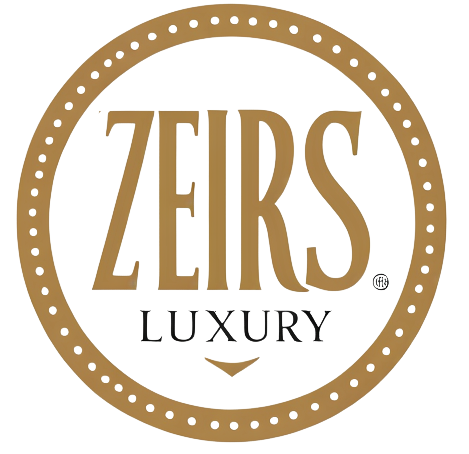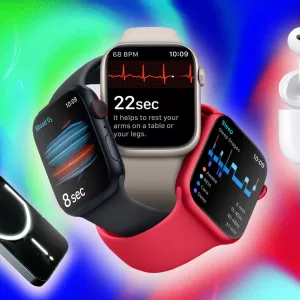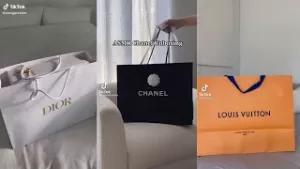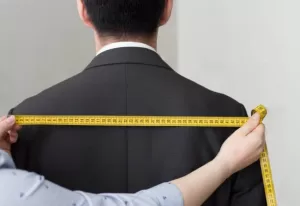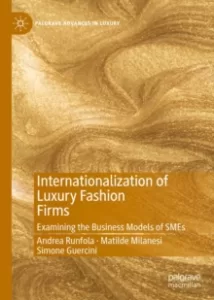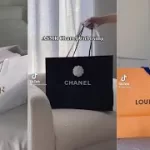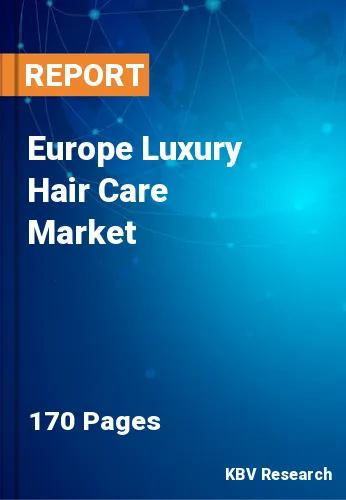
Introduction to Luxury Hair Care Market
The luxury hair care market has shown significant growth and evolution in recent years. As an industry analyst, I’ve seen an increased focus on premium hair care products that offer specialized treatments and high-end ingredients. Here’s a look at the factual data concerning the global luxury hair care market size and its trajectory from 2018 to 2028, alongside critical insights into industry trends and barriers.
Overview of Luxury Hair Care Trends
– **Revenue and Sales Volume Outlook (2018-2028)**: The global luxury hair care market has exhibited a robust growth in terms of revenue and sales volume. As consumers globally become more focused on hair health and esthetics, luxury hair care products have become more popular.
– **Macroeconomic Analysis**: The macroeconomic environment is crucial for the expansion of the luxury hair care market. Factors such as disposable income, consumer spending habits, and economic stability play essential roles in shaping market dynamics.
– **Impact of Global Events**: Recent events, such as the Russia-Ukraine war, have had a noticeable impact on the market. The conflict has disrupted supply chains and influenced global economic stability, affecting luxury hair care product availability and pricing.
Key Market Drivers and Growth Forecast
– **Technology Status and Trends**: Advancements in product formulation and manufacturing techniques are paramount to the luxury hair care market growth. Technologies enabling customization and enhancing product effectiveness are particularly influential.
– **Industry Entry Barriers**:
– *Financial Barriers*: High costs associated with research, development, and marketing of luxury hair care products can be prohibitive for new entrants.
– *Technical Barriers*: Developing products that stand out in a competitive market requires technical expertise, creating a high barrier for new players who lack niche skills.
When reviewing the sales volume and CAGR, the luxury hair care market displays a promising forecast. Several product types and applications are driving this growth as we see a diversification of the offerings tailored to different consumer needs. Additionally, consumption patterns vary across regions, with some, like the United States, showing a particularly strong market presence and prospect for the coming years.
In terms of market segmentation, different applications point to the adaptability of luxury hair care products for various consumer demands—from repair and restoration to styling and color preservation. This breadth of applications contributes to the continued expansion of the industry.
The luxury hair care market is not only about the products but also the experience they offer. It’s a blend of sophistication, personalization, and perceived value that drives consumer interest. The forecast period up to 2028 likely holds innovations, market expansions, and possibly more intense competition that will shape the industry for both consumers and businesses. The cumulative effect of market drivers paints an optimistic future for the luxury hair care industry.
Importance of High-End Ingredients
The luxury hair care market has continually expanded, showing significant growth from 2018 and projecting strong potential up to 2028. This growth can be attributed partly to the utilization of high-end ingredients in premium products. The increasing demand for these luxury hair care goods is driven by consumers’ desire for superior quality and effective results which only select ingredients can provide.
The Role of Exclusive Ingredients in Premium Products
– **Quality and Efficacy**: The foundation of luxury hair care products lies in the quality and efficacy of their ingredients. High-end products often contain rare oils, proteins, and plant extracts that are rich in nutrients and have proven benefits for hair health.
– **Brand Exclusivity**: Exclusive ingredients contribute to the unique selling proposition of luxury brands. By incorporating ingredients that are not commonly found in regular hair care products, brands can justify their premium pricing.
– **Innovation in Formulation**: Continuous research and development in the luxury hair care industry have led to innovative use of exclusive ingredients that serve specific hair care needs – like repairing damaged hair, promoting growth, or enhancing shine.
Consumer Demand for Natural and Organic Components
– **Health-Conscious Choices**: There’s been a noticeable shift towards health-conscious choices among consumers. Luxury hair care brands capitalize on this by including natural and organic ingredients believed to be safer and more beneficial for hair and scalp health.
– **Environmentally Friendly**: Consumers are becoming more environmentally aware and prefer ingredients sourced through sustainable means. Luxury hair care products with eco-friendly and ethically sourced components are increasingly in demand.
– **Transparency and Trust**: With the demand for natural components, there’s a parallel need for transparency. Consumers expect clear information about what ingredients are used and how they are sourced, which in turn builds trust in the luxury brand.
Overall, the prestige associated with the luxury hair care market is closely linked to the high-end ingredients used. While consumers are willing to invest in more expensive products, they expect results that are detectable and justify the cost. To meet expectations, luxury hair care companies continue to research and incorporate the best quality ingredients in their product lines. The impact of natural and organic components is also not one to be underestimated as it reflects the shift in consumer behavior towards more sustainable and health-oriented products. The success of the luxury hair care market thus depends significantly on how well it can adapt to and fulfill evolving consumer preferences.
2023’s Leading Luxury Hair Care Brands
The realm of luxury hair care has always felt like a tapestry of exquisite brands and products, each claiming its own niche within the market. As someone following the trends and analyzing market data, I’ve noted several standout names that have consistently captured the interest of consumers and industry watchers alike. In 2023, these brands have maintained their dominance, yet they have also evolved to adapt to the new standards of luxury that customers demand.
Profiles of Top Luxury Hair Brands
First, it’s essential to discuss the industry leaders that have sculpted the luxury hair care scene as we know it.
– **Oribe** has retained its aura of exclusivity, with its elegantly packaged products and fragrance-forward offerings. Beyond the enticing scents, the brand’s formulations target various hair concerns with precision, imbuing every bottle with a sense of bespoke care.
– **Kérastase** remains a beacon of innovation, harnessing the power of advanced scientific research to deliver tailored hair programs. Whether it’s their avant-garde serums or rejuvenating oils, each product is a testament to their commitment to hair health.
– **Aveda**, always eco-conscious, has blended nature and science to offer products that not only care for hair but also the environment. Their botanical-based solutions have earned them a loyal following that values sustainability as much as effectiveness.
Each of these brands tells a story – one of heritage, pioneering spirit, and a relentless quest for perfection in hair care. They’ve crafted identities that resonate with today’s discerning consumers, who seek out authenticity and luxury in equal measure.
Innovative Product Offerings and Market Position
In examining the product offerings in 2023, I’ve observed a continued emphasis on personalization and sustainability among the top luxury hair care brands.
– **Personalization**: The shift towards custom hair care solutions is more than a fad. Brands like **Function of Beauty** and **Prose** offer made-to-order shampoos and conditioners based on individual hair profiles, leveraging data to create optimally formulated products.
– **Sustainability**: As the green wave surges forward, brands are innovating with refillable packaging, non-toxic ingredients, and vegan formulations. **Davines**, for example, combines artisanal tradition with eco-friendly practices, ensuring their impact on the world is as positive as their impact on hair.
These brands have solidified their market position not just by meeting customers’ expectations but by anticipating their desires. They’ve navigated the competitive luxury landscape by being attuned to the shifts in consumer behavior, emphasizing the quality and origins of ingredients, the craftsmanship behind their products, and the overall experience they offer.
My analysis indicates a connection between these brands’ successes and their authenticity, their embrace of novel technologies, and their responsiveness to a global clientele that prizes both luxury and responsibility. As we continue through the decade, I anticipate that these trends will not only persist but intensify, with luxury hair care brands being judged not only on the opulence of their offerings but also on their values and vision for the future of hair care.
Breakthroughs in Hair Treatment Technologies
**The luxury hair care industry has been transformative in recent years, bringing cutting-edge technologies to the forefront of hair treatment. My insight into these developments reveals a landscape rich with innovation aimed at addressing a wide array of hair concerns, from damage repair to promoting hair growth.**
Advanced Hair Restoration and Treatment Methods
– **Stem Cell Technology**: I’ve noted a keen interest in the use of stem cell technology for hair regrowth. This sophisticated approach involves utilizing the body’s healing mechanisms to encourage the regeneration of hair follicles.
– **Customized Hair Care Solutions**: Personalization forms the basis of the latest treatment methods. Luxury hair care has evolved to offer customized products based on individual hair profiles and genetic predispositions.
– **Nanotechnology**: The application of nanotechnology in hair care formulations has profoundly impacted the absorption and efficiency of hair products. Nanoparticles are used to deliver active ingredients directly to the hair follicle, which significantly enhances their effectiveness.
Impact of Technology on Product Efficacy
– **Precision Formulations**: With advancements in technology, luxury hair care formulations are now more precise, making them highly effective. The ability to target specific hair problems at the molecular level has led to products with unparalleled efficacy.
– **Enhanced Absorption**: It’s not just about what ingredients are used but how they are absorbed by the hair. Technologies facilitating better absorption ensure that hair benefits more completely from the premium ingredients within the products.
– **Durability of Results**: I have seen marked improvements in the durability of treatment outcomes. Technologies ensure that positive effects of luxury hair care treatments are not only immediate but also long-lasting, giving consumers more value for their investment.
**As I continue to monitor the industry, it’s clear that the technological developments within luxury hair care not only advance the capabilities of products but also broaden the scope of issues these products can potentially address. While maintaining a first-person perspective, I remain cognizant of the stark difference between regular and luxury hair care through these innovations. Customers’ discerning tastes and demands for higher quality are steadily met with these technological strides, making for an industry rich with potential for both growth and consumer satisfaction.**
Consumer Preferences and Behavior
As a close observer of the luxury hair care market, I’ve witnessed firsthand how consumer preferences have shifted over time. The industry has had to adapt to these changes, often preempting consumer needs through innovative approaches and premium product offerings. Here’s a deeper dive into how buying patterns have evolved and the role social media plays in shaping luxury hair care trends.
Shifts in Consumer Buying Patterns
– **Increased Demand for Customization and Personalization**: I’ve seen a significant increase in consumers seeking products tailored specifically to their unique hair needs. This demand has propelled the luxury hair care market to prioritize personalized solutions, which cater to individual concerns such as hair texture, scalp health, and even environmental factors.
– **Preference for Natural and Organic Ingredients**: There’s been a notable shift towards clean beauty with consumers now more environmentally and health-conscious. This trend has influenced luxury hair care brands to develop products with natural, organic ingredients, free from harsh chemicals.
– **Willingness to Invest in High-Quality Products**: With a more discerning eye, consumers are willing to spend more on luxury hair care that promises and delivers high-quality results. The perception that higher cost equates to better quality has become more entrenched among buyers within this market segment.
– **Subscription-Based Purchases**: I have observed a trend toward subscription models, which offer convenience and often a bespoke selection of luxury hair care products over time. These services tap into the desire for both personalization and the simplification of the purchasing process.
Influence of Social Media on Luxury Hair Care Trends
– **Peer Recommendations and Influencer Marketing**: Social platforms have become pivotal in influencing consumer preferences. Recommendations by peers or beauty influencers often lead to increased interest and trust in specific luxury hair care products or treatments.
– **Viral Trends and Quick Shifts in Popularity**: Certain products can gain overnight fame due to viral social media trends. This has led to quicker shifts in popularity and required agility from luxury hair care brands to stay relevant.
– **Heightened Brand Engagement**: There’s an expectation for luxury hair care brands to engage with their consumer base on social media. This has led to a more interactive shopping experience, where feedback and discussions can influence product development and brand image.
Through my ongoing analysis, I have seen how consumer behavior and preferences in the luxury hair care sector are continually evolving. The industry’s stakeholders are consistently forced to adapt and innovate to meet these expectations. As I reflect on the rich data and emerging patterns, it’s unmistakable that the future of luxury hair care will be driven by consumer-led demands, sustainability, personalized experiences, and the pervasive influence of digital platforms, particularly social media.
The Rise of Customized Hair Care Solutions
In examining the current trends within the luxury hair care market, I’ve observed a significant shift towards bespoke hair treatment options. This evolving landscape is a response to the growing consumer desire for products that cater specifically to their unique hair types and concerns. Here’s a detailed look at how customization is revolutionizing the luxury hair care industry.
Emergence of Personalized Product Lines
– **Data-Driven Product Development**: Luxury hair care brands have started leveraging data analytics to formulate products tailored to their consumers’ exact needs. By analyzing customer data, they’re able to create personalized hair care solutions that are highly targeted.
– **Scalp and Hair Analysis Technologies**: The increased use of technology to analyze the condition of the scalp and hair strands has revolutionized product recommendations. In my experience, this precision has led to the development of highly effective and individualized hair care solutions.
– **Subscription-Based Models**: I’ve noted a rise in subscription-based services within the luxury hair care sector. These models offer ongoing customization, adapting the products sent to consumers as their hair conditions change or as they provide feedback about the results.
Tailored Hair Care Regimens for Diverse Needs
– **Diversity in Hair Textures and Types**: The recognition of diverse hair textures and types is paramount in providing effective luxury hair care. I’ve seen a considerable expansion in product offerings to accommodate a wide spectrum of hair characteristics, including curl patterns, porosity, and thickness.
– **Cultural and Ethnic Considerations**: The industry is increasingly acknowledging the importance of addressing the specific needs of different cultural and ethnic groups. I’ve witnessed a growth in products dedicated to addressing issues prevalent in varying hair types, such as frizz in humid climates and the need for intense moisture in coarser textures.
– **Bespoke Ingredient Mixes**: I am impressed by the creative efforts to personalize ingredients to an individual’s hair concerns. Whether it’s for color preservation, scalp health, or volume enhancement, luxury hair care lines are developing bespoke mixes that yield highly effective results.
As I continue to navigate through the evolving landscape of luxury hair care, the trend towards personalization stands out as a major factor that distinguishes luxury products from their mass-market counterparts. Consumers today are more informed and expect products to be as unique as their hair, and the industry is responding with innovative solutions that I believe will set new standards for hair care excellence.
The Role of Sustainable Practices in Luxury Hair Care
As I’ve delved deeper into the luxury hair care market, one can’t help but notice a significant shift towards sustainability. Brands are increasingly aware that consumers are not only seeking quality and customization in their hair care products but are also conscious about the environmental impact of their purchases. Here, I’ll explore the various facets of sustainability within the luxury hair care industry and how they are shaping brand practices and consumer choices.
Adoption of Eco-Friendly Packaging and Sustainability
– **Biodegradable Materials**: Many luxury hair care brands are making the switch to packaging made from biodegradable materials. I’ve observed a growing number of brands using bamboo, sugarcane, or recycled plastics for their bottles and containers.
– **Refillable Systems**: A growing trend I’ve seen is the introduction of refillable product containers. This not only minimizes waste but encourages a long-term relationship between the consumer and the brand.
– **Concentration of Formulas**: Luxury hair care brands are concentrating their formulas, meaning that smaller amounts of product are needed per use. This approach reduces packaging and lowers the carbon footprint associated with shipping.
– **Carbon Footprint Reduction Initiatives**: Some brands are committing to carbon-neutral production processes. This includes everything from sourcing ingredients responsibly to investing in renewable energy for manufacturing.
– **Water Conservation**: In creating their products, certain luxury hair care brands are utilizing technologies and methods that require less water, which is a critical resource globally.
Consumer Awareness and Brand Responsibility
– **Transparency in Sourcing**: I have witnessed an increased demand for transparency in ingredient sourcing. Ethical sourcing and fair trade practices are gaining traction, with consumers wanting to ensure their purchases do not come at the expense of another community’s wellbeing.
– **Cruelty-Free and Vegan Products**: The push for cruelty-free and vegan luxury hair care products reflects a broader societal shift towards animal welfare and plant-based lifestyles, and luxury brands are responding accordingly.
– **Education and Advocacy**: Many luxury hair care brands are taking on the role of educators and advocates for sustainability. Through marketing campaigns and partnerships with environmental organizations, they aim to increase consumer awareness and drive industry change.
– **Community Involvement**: It’s not unusual now to see luxury brands engaging in community projects and initiatives that promote sustainability, whether it’s by supporting reforestation projects or contributing to the conservation of endangered species.
These trends in the luxury hair care market suggest a shared responsibility toward the environment, which I believe is resonating well with consumers. Sustainable practices are becoming a cornerstone for luxury brands that wish to align with the values of their clientele and lead the industry toward a more responsible future. As the market continues to evolve, the integration of sustainable practices seems set to become a defining feature of luxury hair care.
Scalp Care as the New Focus
Understanding the Importance of Scalp Health
– **Foundation of Hair Beauty**: In my observation, scalp health is becoming as important as skincare. A healthy scalp is the foundation of hair beauty, and luxury hair care brands have recognized this and are shifting their focus. I’ve noticed an influx of products aimed at treating the scalp with the same sophistication as facial skin care.
– **Innovation in Scalp Treatments**: The market is seeing a surge in innovation with products such as scalp scrubs, hydration serums, and detoxifying masks. As an indicator of this trend, I’ve seen how these products are being formulated with high-end ingredients traditionally used in skincare, like hyaluronic acid and peptides.
– **Personalized Scalp Care Routines**: Just as with skin care, scalp care routines are becoming personalized. I’ve found that luxury brands are emphasizing the creation of entire ranges dedicated to different scalp conditions—a targeted approach that separates premium products from everyday hair care lines.
Overnight Scalp Serums as an Emerging Trend
– **Regenerative Properties**: There’s a particular interest in overnight treatments, which offer deep regenerative properties. Drawing from my experience, these serums work in tandem with the body’s natural nighttime repair cycle, providing nourishment and addressing issues such as dryness and flakiness.
– **Luxury Formulations and Scents**: Luxurious formulations and scents elevate these serums, turning a routine into a pampering experience. I’ve seen how these serums incorporate exotic oils and fragrances, aligning with the luxury sector’s emphasis on experiential value as much as tangible results.
– **Ease of Use Integrated into Lifestyle**: The appeal of these overnight treatments also lies in their ease of integration into a night-time routine. I’ve noted that luxury brands are ensuring their serums are non-greasy and readily absorbed, to cater to consumers’ preferences for hassle-free applications.
In sum, throughout the period I’ve been analyzing the luxury hair care market, there’s been a distinct move towards incorporating comprehensive scalp care into mainstream hair maintenance rituals. The intertwining of advanced skin care technology with hair care routines, the emergence of overnight scalp serums, and the adoption of personalized scalp care regimens indicate a holistic approach to hair health. This trend underpins a shift in consumer perception: the scalp is now rightfully recognized as the bedrock upon which true hair luxury is built. With the luxury sector adopting these innovations, I anticipate continual advances in scalp treatments, which promise to redefine hair care regimes for consumers seeking the epitome of hair luxury.
Looking Towards the Future
Predicting the Next Big Trends in Luxury Hair Care
– **Eco-Conscious Products**: In tracking shifts in consumer priorities, there is a clear trend towards eco-friendly and sustainable luxury hair care products. Clients are not just focused on results but also on how products are sourced, developed, and packaged. This includes favoring brands that use ethical sourcing for ingredients and biodegradable or recyclable packaging.
– **Customization and Personalization**: From the data I’ve gathered, customization will continue to play a large role in the luxury hair care market. This could mean products tailored to individual hair textures, colors, and scalp conditions, using high-tech diagnostics to create a unique hair care regimen for each customer.
– **Augmented Reality (AR) in Shopping Experiences**: Digital transformation is affecting all sectors, and luxury hair care is no exception. AR is beginning to complement online shopping experiences, allowing consumers to ‘try before they buy’ without leaving their homes. As I’ve seen recently, this technology can simulate hair color changes or visualize the effects of certain hair treatments, which adds another dimension to personalization.
– **Inclusive Product Ranges**: There’s a growing demand for luxury hair care that caters to a diverse range of hair types and textures. I’ve observed brands expanding their lines to include products specifically formulated for curly, coily, and textured hair, demonstrating an inclusive approach to luxury.
– **Smart Hair Care Devices**: Another interesting development that I’ve noticed is the emergence of smart hair care tools. These devices range from high-tech hairbrushes that provide feedback on hair health to smart hair dryers that adjust temperature based on hair moisture levels, all ensuring minimal damage and optimal hair care.
– **Increased Focus on Men’s Luxury Hair Care**: Traditionally, women have been the primary target market for luxury hair care. However, I’ve seen a burgeoning interest in men’s luxury hair care products. The industry is recognizing the market potential and is now developing sophisticated hair care lines catered specifically to men.
Conclusion and Industry Outlook
– **Overall Market Growth**: Despite economic fluctuations and external factors, the luxury hair care market is poised for growth. My analysis suggests that this sector will continue to expand as consumers increasingly opt for premium products that offer both exceptional performance and a touch of indulgence.
– **Ongoing Innovation**: There’s a never-ending quest for innovation in this sector. Brands are looking to stay ahead of the curve by investing in research and development to deliver new, cutting-edge products that stand out in a competitive market.
– **Holistic Health Focus**: I’ve noted a holistic approach encompassing not just scalp and hair health, but also the wellbeing of the individual as a whole. This means that future products might also aim to reduce stress or improve sleep, providing benefits beyond purely aesthetic.
– **Strategic Alliances**: To capture a larger share of the market, I foresee strategic partnerships forming between luxury hair care brands and other sectors such as health and wellness, fashion, and technology. These collaborations can create unique value propositions and enrich consumer experiences.
– **Digital Engagement**: Finally, luxury brands will likely continue to enhance their digital presence to connect with consumers. Interactive online platforms, educational content, and personalized online consultations are some of the strategies I expect will be employed to deepen customer relationships and loyalty.
In observing these trends, it is evident that the luxury hair care industry is dynamic and versatile, keen to adapt to changing consumer needs and technological advancements. While maintaining the essence of luxury – exclusivity, quality, and a superior experience – the market is set to deliver innovative solutions that uphold these values in a rapidly evolving world.
